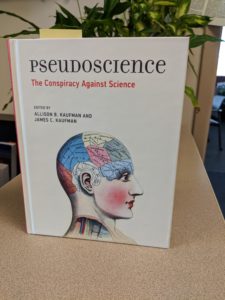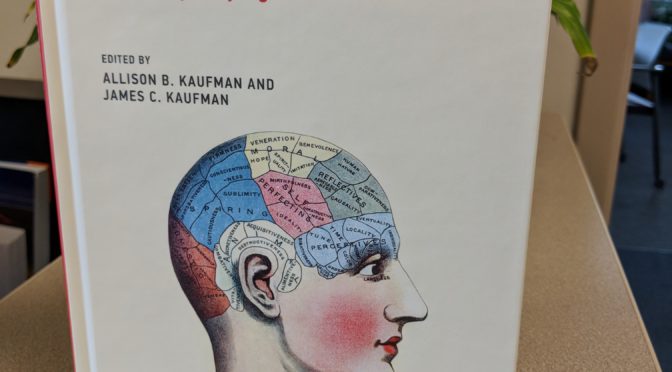One of the many things I’ve been busy with that have kept me from blogging has now seen print: a chapter in the new MIT Press book Pseudoscience: The Conspiracy Against Science, edited by Allison Kaufman and James Kaufman. This has a bunch of different takes on pseudoscience, from a range of academic disciplines, and includes Internet luminaries Orac and Ivan Oransky.
My chapter is titled “Scientific Failure as a Public Good: Illustrating the Process of Science and Its Contrast with Pseudoscience,” and the argument is pretty similar to this 2015 piece for The Conversation (which is, in fact, how I got asked to write the chapter in the first place…). I go through two big recent debacles in physics, the OPERA faster-than-light neutrino thing and the BICEP2 primordial gravitational waves business, and point out how the behavior of the scientists involved fits a clear pattern showing how real science works. Both the initial claim and the criticism of it come from within the relevant scientific community, the debate over the validity is carried out in the regular scientific literature, and the ultimate resolution comes with the active participation of the original scientists.
As a contrast to this, I look at a specific example of a pseudo-scientific enterprise, namely the “hydrino” physics of Randell Mills, a fringe theory which is promoted by an outsider, mostly operates through non-standard channels, and barely acknowledges the existence of criticism, let alone accepting it and working to resolve the issues. The contrast is really stark, and I would say that this sort of procedural distinction can be a useful part of a bullshit filter for anyone looking to distinguish real-but-incorrect science from pseudoscience.
This is written for an academic audience, so the language is a little more formal and complicated than a lot of my popular stuff, which made an interesting contrast during the writing process. It also involved a lot of LexisNexis searching for news articles, which was kind of fun in a really dorky way. Other than the occasional baroque sentence, though, it’s probably a pretty accessible read, since the editors are psychologists, not physicists.
Or, at least, it would be accessible to read if it were, you know, accessible. That part of academia hasn’t really embraced the concept of the arxiv yet, so there isn’t a readily available online version. I think there’s some provision for posting a PDF on my website eventually; I need to check into that.
The finished book looks pretty spiffy, though:

I can’t vouch for any of the other pieces (yet, anyway; I may try reading a few), so I don’t know that I’d push you to drop $40 on a copy for yourself. You could ask your local library to pick it up, though…

